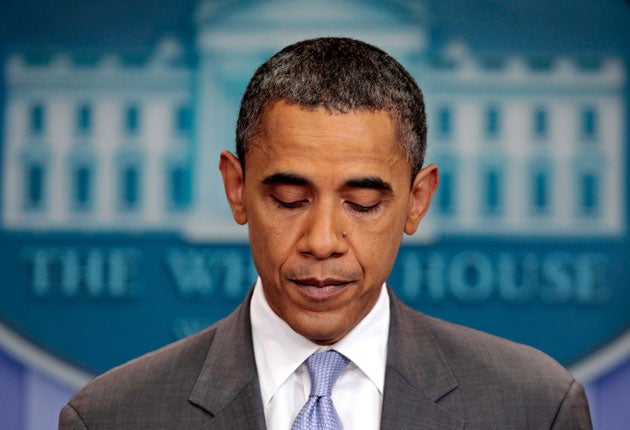Politicians to vote on last-minute debt deal

Congressional leaders scrambled for enough support from skeptical lawmakers to push through an 11th-hour deal to raise the US borrowing limit and avert a potentially devastating debt default.
Just one day before the deadline to lift the debt ceiling, the Democratic-led Senate appeared on track to pass the $2.1 trillion deficit-cutting plan either later on Monday or on Tuesday. But uncertainty over its fate in the Republican-controlled House of Representatives rattled financial markets worldwide.
Leaders of both parties worked furiously to sell their rank-and-file on a deal reached with President Barack Obama in a bid to end an acrimonious impasse that has undermined Americans faith in their political institutions and hurt America's image abroad.
Vice President Joe Biden met for 2-1/2 hours with House Democrats, many of whom are unhappy about the steep spending cuts with no tax increases in the deal he helped broker.
"I am confident that this will pass," he told reporters afterward.
Global markets at first showed signs of relief that the United States appeared to be dodging default, but fears that the country might still lose its triple-A credit rating even with a debt deal contributed to a fizzle in a brief stocks rally.
"We avoided the possibility of a default, but now concerns are turning to a possible downgrade," said Phil Streible, senior market strategist with futures broker Lind-Waldock in Chicago.
But amid mounting complaints on the left and the right, broad congressional approval remained far from certain. The compromise plan calls for spending cuts over 10 years but no new taxes, creates a powerful new congressional committee to recommend a deficit-reduction package by late November and raises the U.S. borrowing limit into 2013.
U.S. lawmakers split into Democratic and Republicans camps to hear appeals from their party leaders to approve the deal which emerged from feverish negotiations as the clock ticked toward the deadline to raise the $14.3 trillion debt ceiling. Party leaders are hoping for sizable majorities in order to give the deal credibility.
If Congress fails to approve the plan by Tuesday, the United States will no longer be able to borrow money to pay all of its bills, a prospect that could have serious global financial consequences.
It is expected to pass the Senate, where Democratic Majority Leader Harry Reid said a vote "could happen either tonight or tomorrow."
But the deal could face a harder path in the House where a vote is expected as early as Monday and both conservative Tea Party supporters and liberal lawmakers have expressed dissatisfaction.
House Democratic Leader Nancy Pelosi, a leading liberal considered crucial to securing enough votes to offset Republican defections, said she was still undecided.
"We are very concerned that a bill that makes these big cuts and has not one red cent from the wealthiest people in our country, no revenue, is very disconcerting," Pelosi said.
While many Democrats clearly were disappointed that the deal has no revenue increases, House Republicans were holding out hope that they would be able to get enough of them to climb on board to propel the legislation to passage.
With 240 Republicans in the House and several of that party's conservatives expected to vote against the bill, it likely will require the help of at least several Democrats for Republican Speaker John Boehner to rack up the 217 votes needed for House passage.
An angry, red-faced Representative Peter DeFazio, a liberal from Oregon, told reporters, "What's the package about, it's all about cutting, cutting, cutting."
On Wall Street, healthcare stocks, including United Health, were among the worst performers on Wall Street as investors feared the debt-ceiling deal could lead to cuts in Medicare and other federal health programs, analysts said.
It was hard to identify winners from a bitter fight that appeared to be finally winding toward a conclusion after Sunday's last minute compromise agreement.
Obama had to accept deeper spending cuts than he wanted and will have to defend them to his liberal base during his campaign for re-election in 2012, but he could win points with moderates independents he needs to win a second term.
Boehner, the top U.S. Republican, got cuts he demanded without immediate tax increases, but had to fight an image of being inflexible and a captive of his party's Tea Party wing.
Americans anxious to reduce the country's 9.2 percent jobless rate became increasingly frustrated as the debate raged on through the summer.
Reuters
Subscribe to Independent Premium to bookmark this article
Want to bookmark your favourite articles and stories to read or reference later? Start your Independent Premium subscription today.

Join our commenting forum
Join thought-provoking conversations, follow other Independent readers and see their replies